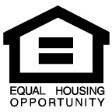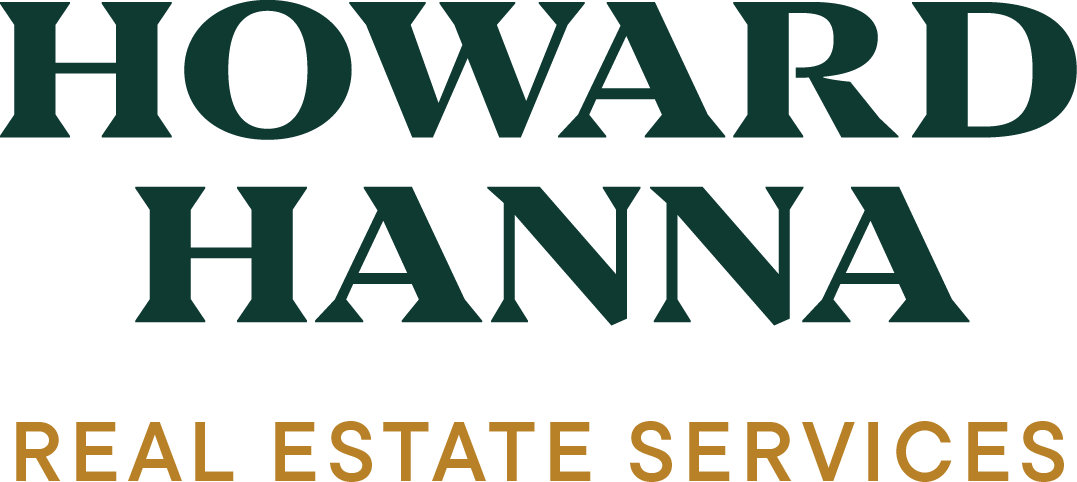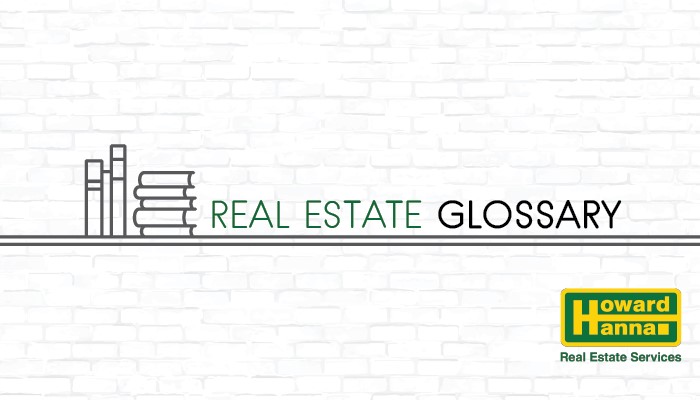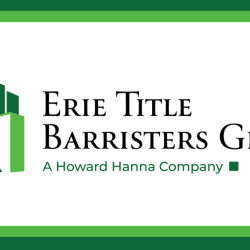In the middle of buying or selling your home, armed with the knowledge of some common real estate vocabulary, you come across some new mortgage terms: DU (Desktop Underwriter), VOE (Verification of Employment), LPMI (Lender Paid Mortgage Insurance), and more.
To help you keep track of the different terminology used in the real estate industry, we’ve compiled the following list of some of the most common mortgage terms.
Common Mortgage Terms
Annual Percentage Rate (APR)
The cost of borrowing when the interest rate and fees to originate a loan are combined, the APR is a common benchmark used by borrowers to compare loans. The higher the loan fees, the higher the APR. For example, here are three $100,000 mortgages. They all have a 4.00 percent interest rate, but one costs nothing, one costs $2,000 and one has fees of $5,000. Here are their APRs:
- $0 costs, APR = 4.000 percent
- $2,000 costs, APR = 4.168 percent
- $5,000 costs, APR = 4.430 percent
Adjustable Rate Mortgage (ARM)
An adjustable-rate mortgage, or ARM, is a home loan in which the interest rate can change based on movement in an agreed-upon index, such as the Secured Overnight Financing Rate, or SOFR.
Usually, ARMs start with lower rates than fixed loans. However, there is always the risk when the loan adjusts that the borrower can eventually end up paying more than if he or she had secured a fixed rate.
Closing Disclosure (CD)
Three days before closing, the lender is required to deliver the Closing Disclosure, or CD. This document itemizes the loan costs. The CD is designed to make it fairly easy to compare with the Loan Estimate, so borrowers can see if the lender changed any terms of the mortgage.
Debt to Income (DTI)
A debt-to-income ratio, or DTI, is how a lender determines how much a borrower can afford to pay every month. By dividing the borrower’s monthly liabilities by monthly income before taxes, the lender arrives at a percentage. To qualify for the mortgage, borrowers usually need to fall below certain thresholds.
Typically, lenders do not want the monthly house payment to exceed 28% of income, and do not want all debt payments (house, auto, credit cards, student loan) to exceed 36% of income. Thresholds can vary by lender and/or agency.
Desktop Underwriter (DU)
Desktop Underwriter is the automated underwriting engine developed by Fannie Mae for underwriting Fannie Mae eligible mortgages. DU is also used for underwriting FHA and VA mortgages.
Equal Credit Opportunity Act (ECOA)
This is a federal law that requires lenders and other creditors to make credit available without discrimination based on race, color, religion, national origin, age, sex, marital status or receipt of income from public assistance programs.
Federal Housing Administration (FHA)
A part of the Department of Housing and Urban Development (HUD), the FHA does not make loans. Instead, the FHA insures loans for qualified individuals who wish to purchase homes with less than 20 percent down.
Fair Isaac Corporation (FICO)
Fair Isaac Corporation was a pioneer in the development of credit scores, which are numerical values calculated from proprietary formulas and based on such factors as payment history, amounts owed, length of credit history, types of credit used, and new credit. Today, a number of organizations offer competing credit score systems, but FICO is the most widely used.
Home Equity Line Of Credit (HELOC)
A home equity line of credit, or HELOC, allows homeowners to borrow cash against home equity. Unlike a second mortgage which has a one-time advance of funds, the HELOC is a revolving line of credit, like a credit card. Borrowers can take what they need (up to the limit) and return for additional funds.
The credit limit is often determined by the loan-to-value ratio and often, a HELOC will have a variable rate.
Housing and Urban Development (HUD)
Housing and Urban Development is the Cabinet Department of the Federal Government that oversees the U.S. housing market.
Investment Property (IP)
Investment Property is owned by a Mortgagor that is a Non Owner Occupant.
Loan Estimate (LE)
When a borrower applies for a mortgage, the Loan Estimate, or LE, is a document that provides details about the mortgage. The lender is required to mail or deliver the LE within 3 business days of the loan application.
The LE describes the interest rate on the mortgage, shows whether the rate is fixed or adjustable, summarizes the estimated loan costs, calculates how much money the borrower will need to take to the closing table, and contains loan-comparison calculations that encourage borrowers to apply at more than one lender and compare loan offers.
Loan Originator (LO) / Mortgage Loan Originator (MLO) / Mortgage Consultant (MC)
A Loan Originator is the person that takes the actual application for a mortgage. An LO can be a licensed mortgage broker or they can work for a lender. Often the acronym MLO is used to refer specifically to a Mortgage Loan Originator.
Loan Prospector (LP)
Loan Prospector is the automated underwriting engine developed by Freddie Mac for underwriting Freddie Mac eligible mortgages. LP is also used for underwriting FHA and VA mortgages.
Lender Paid Mortgage Insurance (LPMI)
Lender Paid Mortgage Insurance is mortgage insurance paid by the lender instead of the borrower. This is accomplished by the lender increasing the mortgage interest rate.
Loan to Value (LTV) / Combined Loan to Value (CLTV)
An LTV, or loan-to-value, is one of the key ratios that lenders use to assess the risk of a loan. The ratio is the mortgage amount divided by the purchase price or appraised value of the property. When a property has multiple mortgages, lenders use a combined loan-to-value ratio, or CLTV.
Borrowers with an LTV or CLTV of less than 80% often get lower interest rates because lenders view such loans as less risky.
Non Owner Occupied (NOO)
Non Owner Occupied is a property where the mortgagor does not live and has the property as an investment.
Owner Occupied (O/O)
Owner Occupied is the mortgagor’s principal or primary residence.
Principle Interest Taxes Insurance (PITI)
Best understood as the bottom line on a monthly mortgage loan, PITI represents the sum total of principal, interest, taxes, and insurance costs. It is the monthly house payment. Lenders divide PITI by the borrower’s pretax monthly income to calculate DTI — the debt-to-income ratio.
Private Mortgage Insurance (PMI) / Mortgage Insurance Premium (MIP)
Private mortgage insurance, or PMI, is paid by the borrower to protect the lender’s investment when the borrower makes a down payment of less than 20% on a home purchase, or when the borrower has less than 20% equity in a refinance.
On a loan insured by the Federal Housing Administration, the borrower pays a mortgage insurance premium, or MIP.
Pre-Payment Penalty (PPP)
Pre-Payment Penalty is charged in those states that allow it by subprime lenders and an occasional conforming lender to assure the lender of making a profitable mortgage investment. A PPP can be either hard or soft. A hard PPP means that the borrower will pay a penalty for paying the mortgage off before a specific time period whether they sell or refinance. Most PPPs are for 3 years or less and with subprime lenders will generally be the same as the fixed period of an ARM mortgage. A soft PPP means that the borrower will have to pay a penalty if they sell or refinance within the first year or refinance within the remainder of the PPP.
Primary Residence (PR)
Primary Residence is where the Mortgagor lives.
Planned Unit Development (PUD)
A comprehensive development plan for a large land area. A PUD usually includes residences, roads, schools, recreational facilities, and commercial, office, and industrial areas. A PUD may also be a subdivision with lots of areas owned in common and reserved for the use of some or all of the owners of the separately owned lots.
Real Estate Settlement Procedures Act (RESPA) & Truth in Lending Act (TILA)
The Real Estate Settlement Procedures Act, or RESPA, and the Truth in Lending Act, or TILA, are the two main pieces of federal legislation that govern mortgage lending to consumers.
Among other things, RESPA and TILA requires lenders to provide borrowers with a Loan Estimate within 3 days of applying for a loan, as well as the Closing Disclosure 3 days before closing.
Remote Online Notarization (RON)
Certain documents at settlement need to be witnessed by a notary public. In the past, these documents were required to be signed in person. However, with the advances in technology, in certain cases, it is possible for a properly registered notary to perform the notarization remotely.
Department of Veterans Affairs (VA)
The federal agency that guarantees mortgages made to individuals with qualifying federal service, usually active-duty service members, veterans, and sometimes their families.
Verification of Rent/Mortgage/Deposit/Employment/Etc. (VOR, VOM, VOD, VOE)
When you apply for a home loan, the lender will want to verify what you said about your personal finances. While different lenders will require different levels of documentation, the process will typically involve some or all of the following forms: verification of rent, or VOR; verification of mortgage, or VOM; verification of deposit, or VOD; and verification of employment, or VOE.
Each form will allow the lender to contact a third party in the position to confirm some aspect of your finances.
HannaFinancial: Everything You Need, Under One Roof
With locations across 10 states and the convenience of over 300 neighborhood offices, Howard Hanna offers a real estate experience that is truly unique. With Mortgage, Title, and Insurance under one roof, we’re able to walk you through the entire home buying or selling process from start to finish.
In Pennsylvania, Ohio, Michigan, and West Virginia, we offer a variety of mortgage loan programs through our Howard Hanna Mortgage Services that each aim to help you become a homeowner. In New York State, we oversee 1st Priority Mortgage, Inc., a Licensed Mortgage Banker, New York State Department of Financial Services, that is committed to delivering a unique process that identifies the best mortgage solution tailored to your individual needs. And in our Southeast region, Towne Mortgage has more than 35 years of experience in the mortgage industry and is actively involved with many non-profit organizations.
Additional Real Estate Glossaries
For more real estate terms, check out our Real Estate Glossary and Vocabulary blogs! Each volume focuses on a different set of terminology in the real estate industry:
- Real Estate Glossary, Volume 1: House Styles
- Real Estate Glossary, Volume 2: Listing Status
- Real Estate Glossary, Volume 3: Molding Styles
- Real Estate Glossary, Volume 4: Landscape Design Styles
- Real Estate Glossary, Volume 5: Flooring Options
- Real Estate Glossary, Volume 6: Roof Types
- Real Estate Vocabulary, Volume 1: Common Terms
 NMLS# 101561. Offer of credit is subject to credit approval. Howard Hanna Real Estate Services is not a mortgage lender. Contact Howard Hanna Mortgage Services for mortgage products and eligibility. Howard Hanna Mortgage Services is licensed by: The Pennsylvania Department of Banking and Securities as a Mortgage Lender – License number 21415. The Ohio Department of Commerce – Division of Financial Institutions – License number RM.804531.000. The Michigan Department of Licensing and Regulatory Affairs, Office of Financial and Insurance Regulation, First Mortgage Broker/Lender License number FL0022570, Second Mortgage Lender Registration number SR0022571. The West Virginia Division of Banking – License number ML-20884. PA (800) 474-4437, 1000 Gamma Drive – Pittsburgh, PA 15238. OH and MI – (800) 589-1118, 6000 Parkland Blvd. – Mayfield Hts., OH 44124. mortgage@howardhanna.com.
NMLS# 101561. Offer of credit is subject to credit approval. Howard Hanna Real Estate Services is not a mortgage lender. Contact Howard Hanna Mortgage Services for mortgage products and eligibility. Howard Hanna Mortgage Services is licensed by: The Pennsylvania Department of Banking and Securities as a Mortgage Lender – License number 21415. The Ohio Department of Commerce – Division of Financial Institutions – License number RM.804531.000. The Michigan Department of Licensing and Regulatory Affairs, Office of Financial and Insurance Regulation, First Mortgage Broker/Lender License number FL0022570, Second Mortgage Lender Registration number SR0022571. The West Virginia Division of Banking – License number ML-20884. PA (800) 474-4437, 1000 Gamma Drive – Pittsburgh, PA 15238. OH and MI – (800) 589-1118, 6000 Parkland Blvd. – Mayfield Hts., OH 44124. mortgage@howardhanna.com.
 Offer of credit subject to credit approval. NMLS# 29600. Howard Hanna Real Estate Services is not a mortgage lender. Contact 1st Priority Mortgage, Inc. for mortgage products and eligibility. 1st Priority Mortgage, Inc. is a Licensed Mortgage Banker, New York State Department of Financial Services. All lending products are subject to credit and property approval. Terms, conditions, and certain restrictions may apply on all programs. Interest rate and program terms are subject to change without notice. This is not a commitment to lend. Contact a 1st Priority Mortgage Consultant for full details: (888) 500-9733.
Offer of credit subject to credit approval. NMLS# 29600. Howard Hanna Real Estate Services is not a mortgage lender. Contact 1st Priority Mortgage, Inc. for mortgage products and eligibility. 1st Priority Mortgage, Inc. is a Licensed Mortgage Banker, New York State Department of Financial Services. All lending products are subject to credit and property approval. Terms, conditions, and certain restrictions may apply on all programs. Interest rate and program terms are subject to change without notice. This is not a commitment to lend. Contact a 1st Priority Mortgage Consultant for full details: (888) 500-9733.
 NMLS: 91904. Howard Hanna Real Estate Services is not a mortgage lender. Contact Towne Mortgage for mortgage products & eligibility. This is not a commitment to lend. Rates and programs are subject to borrower eligibility.
NMLS: 91904. Howard Hanna Real Estate Services is not a mortgage lender. Contact Towne Mortgage for mortgage products & eligibility. This is not a commitment to lend. Rates and programs are subject to borrower eligibility.











[…] In the middle of buying or selling your home, armed with the knowledge of some common real estate vocabulary, you come across some new mortgage terms: DU (Desktop Underwriter), VOE (Verification of Employment), LPMI (Lender Paid Mortgage Insurance), and more.… Read more › […]